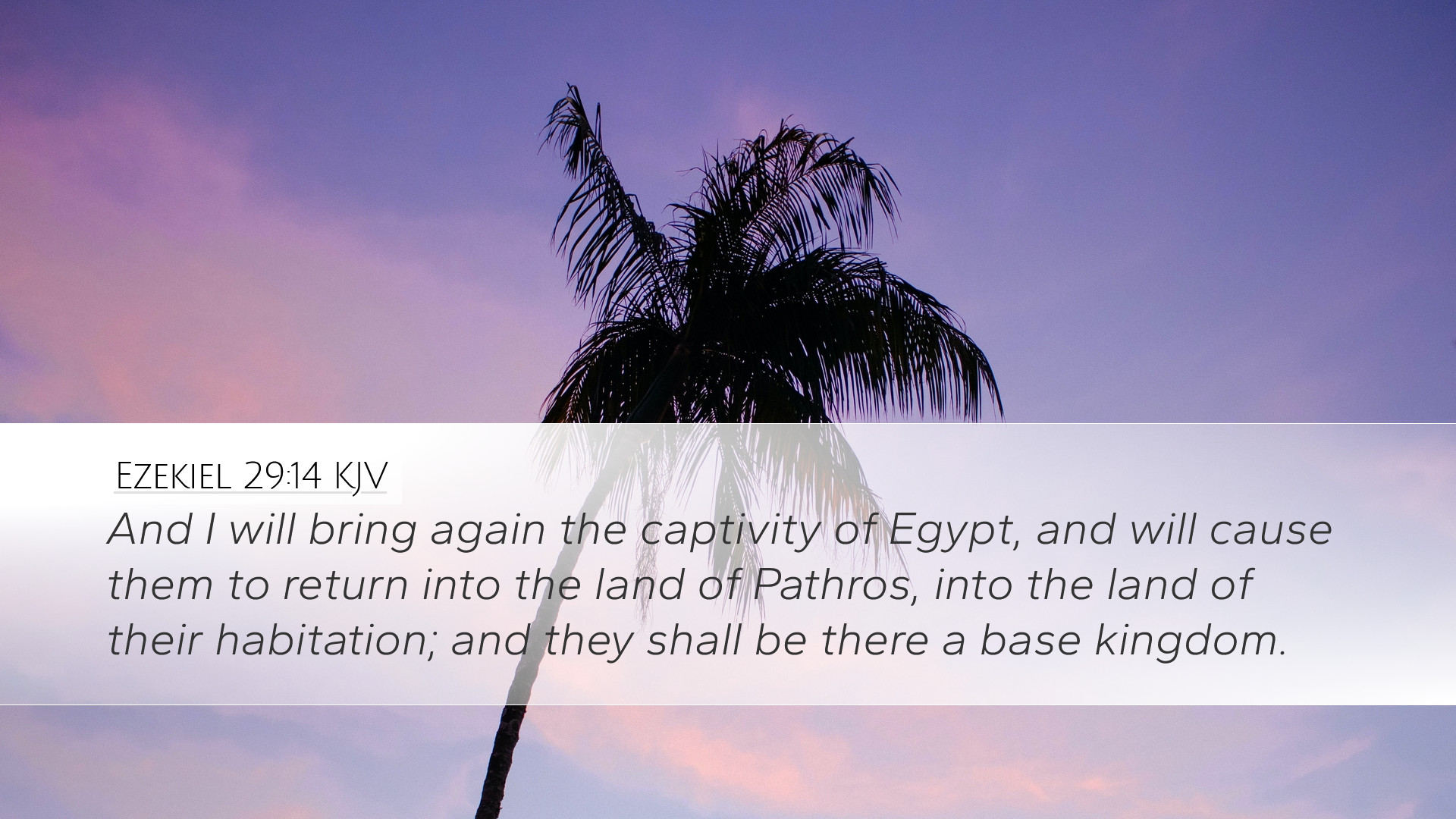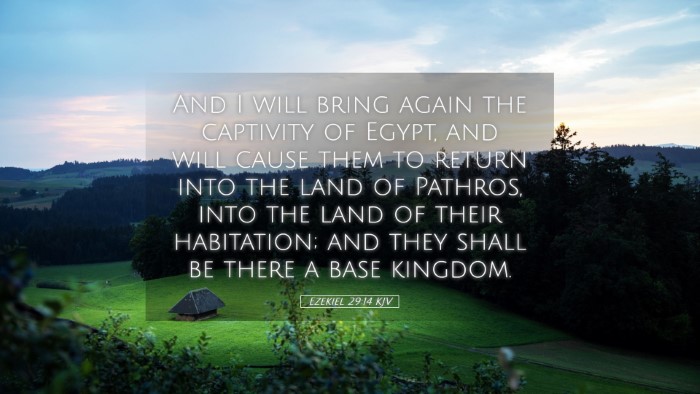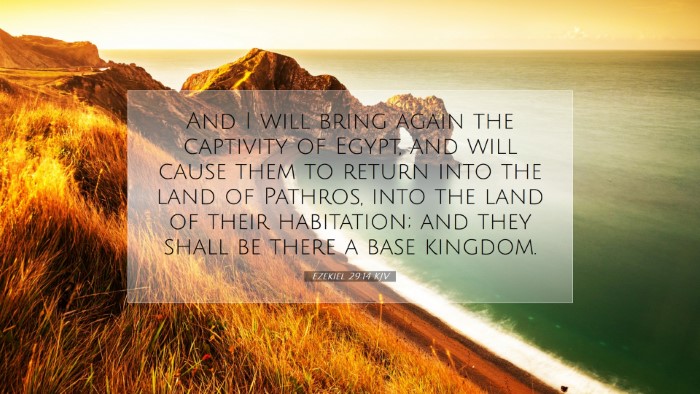Ezekiel 29:14 Commentary
Bible Verse: “And I will bring again the captivity of Egypt, and will cause them to return into the land of Pathros, into the land of their habitation; and they shall be there a base kingdom.” (Ezekiel 29:14, KJV)
Introduction
The passage in Ezekiel 29:14 is significant in the broader context of Ezekiel's prophecies concerning Egypt. This particular verse encapsulates a promise of restoration alongside a sober declaration regarding the diminished status of Egypt. The various commentaries provide insights that highlight the theological implications, historical context, and practical applications of this verse for contemporary believers.
Contextual Background
Ezekiel prophesied during a tumultuous time for Israel and its neighbors. The Assyrian and Babylonian powers were reshaping the geopolitical landscape, and Egypt often sought to play a role in these dynamics. Ezekiel's prophecies not only addressed Israel's future but also those of surrounding nations, emphasizing God's sovereignty over all kingdoms.
Historical Context
- Egypt's Historical Significance: Egypt was once a dominant world power, but its influence had waned significantly by the time of Ezekiel's writing.
- The Prophetic Role: Ezekiel, as a prophet during the exile, condemned Egypt for its pride and false security derived from military alliances against Babylon.
Thematic Analysis
The verse can be divided into two central themes: restoration and a diminished status. These themes reveal God's overarching plan for redemption and judgment.
1. Restoration of Egypt
In the first part of the verse, God promises the return of captives from Egypt. This reflects God's mercy and willingness to restore nations that turn away from idolatry. Matthew Henry conveys that God's intent to bring back captives is indicative of His sovereign ability to gather His people from various nations. It symbolizes a hope for all nations in God’s plan of redemption.
2. The Condition of Egypt as a Base Kingdom
The latter part of the verse describes Egypt as a base kingdom, signifying its reduced status. Albert Barnes points out that the term “base” suggests a demotion from former glory, emphasizing that regardless of their geographical significance, their spiritual condition has rendered them insignificant in God's eyes. This serves as a warning against pride and self-reliance.
Theological Implications
Ezekiel 29:14 speaks to God's sovereignty and the nature of divine judgment. Adam Clarke notes that this passage demonstrates how God can elevate or humble nations based on their fidelity to Him. This truth encourages believers to reflect on their devotion to God and recognize that true power lies in faithful service rather than political or military might.
Judgment and Mercy
The dual aspects of judgment and mercy underscore the complexity of God's dealings with nations. God’s promise to restore Egypt provides hope while reinforcing the reality that unfaithfulness leads to decay.
Practical Applications
This verse has vital applications for pastors and theologians, particularly in conveying God's nature to congregations.
1. The Hope of Restoration
Just as God promises to restore Egypt, ministers can remind their congregants that no situation is beyond the reach of God's restorative power. There is always hope for redemption regardless of circumstances.
2. The Danger of Pride
Egypt’s fate serves as a cautionary tale against pride and independence from God. This lesson encourages individuals and communities to rely on God rather than human might or achievements.
3. A Call for Reflection
The call to consider one’s spiritual condition can be a profound message in sermons. Believers are invited to assess their relationship with God and ensure it remains grounded in faith and humility.
Conclusion
In sum, Ezekiel 29:14 is a multi-faceted verse that encapsulates themes of restoration and judgment. Through the insights of public domain commentaries, we see the implications of this prophecy not only for Egypt but for all nations, including the church today. The verse acts as a reminder of God’s sovereignty and the need for repentance and faithfulness in all aspects of life.


